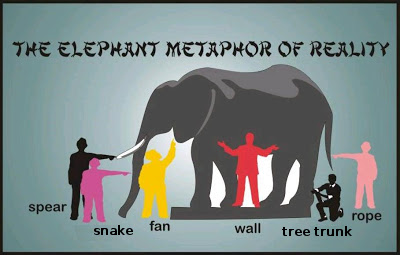
(Click to see their view of reality)
by John P. Pratt
31 Oct 2019, 1 Birth (Mars), 1 Skull (SR), 1 Death (M)
©2019 by John P. Pratt. All rights Reserved.
|
1. Christian Fathers 1.1 Origen of Alexandria 1.2 Other Church Fathers 2. Mormon Teachings 2.1 Heber C. Kimball 2.2 Orson F. Whitney 2.3 Melvin J. Ballard 2.4 William W. Phelps 3. Grand Council 3.1 Intelligences 3.2 Spirits 3.3 Souls 3.4 Condescension 4. Conclusion Notes |
This is the last of a series of four articles on reincarnation, the first three of which focused on teachings from Eastern religions.[1] They attempted to make the first steps toward reconciling apparent contradictions between reincarnation and traditional Christianity. This article reviews quotations from the early Ante Nicene Fathers of the Christian Church which indicate that reincarnation of humans into repeated mortal lives was taught secretly to the most advanced disciples before it was declared a heresy and purged from the official canon.
 |
This article does not build on the previous three articles, so it can read separately. It covers only introductory teachings, which were trying get Christians to open up to the idea of multiple probations at all. If the reader has any desire to delve into the deeper questions of reconciliation with traditional doctrine, an attempt to answer some of those questions was the subject of the first three articles.
Although the attempt was made to purge the New Testament of books containing references to reincarnation, still some of the original teachings are available. They were never part of the official teachings but known to the early fathers of the Church. They are easily accessed on line, including details of the debates as to why they were rejected. Many of those reasons were the same as the reasons that modern Christians reject reincarnation out of hand, because it seems so foreign to what has been taught and what is explicitly stated in the Bible. Let us now consider some of those early fathers who openly espoused reincarnation.
 |
Origen was a believer in reincarnation and it was principally his teachings which led to a great debate on whether or not that doctrine was going to be accepted as orthodox. Even though that debate ended with the rejection of reincarnation, let us look at some of his teachings which, due to them having been purged, exist only in fragmentary quotations.
Perhaps his best known quote on this subject is the following:
"The soul has neither beginning nor end. They come into this world strengthened by the victories or weakened by the defeats of their previous lives." (Origen, de Principiis)[3]
This matches what the Lord has revealed in the latter days, but using the more precise English word "intelligence" for what is translated "soul" from Origen:
Man was also in the beginning with God. Intelligence, or the light of truth, was not created or made, neither indeed can be. All truth is independent in that sphere in which God has placed it, to act for itself, as all intelligence also; otherwise there is no existence. -- D&C 93:29-30
The following is an excerpt from a summary of Origen's theology concerning reincarnation which is at best only sketchy. It is included here to show his ideas also on a pre-existence and resurrection:
Looking at the sequence of creation from its inception to its conclusion, one could summarize his system as follows: Originally all beings existed as pure mind on an ideational or thought level. Humans, angels, and heavenly bodies lacked incarnate existence and had their being only as ideas.... As the mind became cool toward God, it made the first step down in its fall and became soul. The soul, now already once removed from its original state, continued with its defection to the point of taking on a body....
Such an account of man's fall does not mean that Origen rejected Genesis. It only means that he was willing to allow for allegorical interpretation; thus Eden is not necessarily spatially located, but is a cosmic and metaphysical event wherein pure disincarnate idea became fettered to physical matter. What was essential for Christianity, as Origen perceived, is that the fall be voluntary and result in a degree of estrangement from God.
Where there is a fall, there must follow the drama of reconciliation. Love is one of God's qualities, as Origen himself acknowledged, and from this it follows that God will take an interest in the redemption of his creatures. For Origen this means that after the drama of incarnation the soul assumes once again its identity as mind and recovers its ardor for God.
It was to hasten this evolution that in the fullness of time God sent the Christ. The Christ of Origen was the Incarnate Word (he was also the only being that did not grow cold toward God), and he came both as a mediator and as an incarnate image of God's goodness. By allowing the wisdom and light of God to shine in one's life through the inspiration of Jesus Christ, the individual soul could swiftly regain its ardor for God, leave behind the burden of the body, and regain complete reconciliation with God.
Since the soul's tenancy of any given body is but one of many episodes in its journey from God and back again, the doctrine of reincarnation is implicit. As for the resurrection of the body, Origen created a tempest of controversy by insisting that the physical body wastes away and returns to dust, while the resurrection takes on a spiritual or transformed body. This is of course handy for the reincarnationist, for it means that the resurrected body either can be the summation and climax of all the physical bodies that came before or indeed may bear no resemblance at all to the many physical bodies.[3]
The official condemnation of Origen was not at the Council of Nicea in AD 325 but two centuries later in AD 553 at the Second Council of Constantinople,[4] for the debate had lasted that long:
With the condemnation of Origen, so much that is implied in reincarnation was officially stigmatized as heresy that the possibility of a direct confrontation with this belief was effectively removed from the church. In dismissing Origen from its midst, the church only indirectly addressed itself to the issue of reincarnation. The encounter with Origenism did, however, draw decisive lines in the matter of pre-existence, the resurrection of the dead, and the relationship between body and soul.[3]
Because of his high standing as a brilliant Christian theologian, some of his writings on reincarnation had been purposely mistranslated into Latin from the Greek so that he would not be rejected as a heretic.[5] His original Greek book On the First Principles is no longer extant, except for fragments.[6] Fortunately, some of the best quotations of Origen's beliefs are best preserved by his opponents trying to prove him a heretic by quoting the original Greek version of that book. For example, St. Jerome criticized him as a heretic by quoting this teaching:
The following passage is a convincing proof that he holds the transmigration of the souls and annihilation of bodies. 'If it can be shown that an incorporeal and reasonable being has life in itself independently of the body and that it is worse off in the body than out of it; then beyond a doubt bodies are only of secondary importance and arise from time to time to meet the varying conditions of reasonable creatures. Those who require bodies are clothed with them, and contrariwise, when fallen souls have lifted themselves up to better things, their bodies are once more annihilated. They are thus ever vanishing and ever reappearing.'[5]
Origen did not, however, believe in the transmigration of human spirits into lower animals, as some others did during his time:
"We think that those views are by no means to be accepted which some people most unnecessarily advance and support, to the effect that rational souls can reach such a pitch of abasement that they forget their rational nature and high dignity and sink into the bodies of irrational beasts, either large or small." (de Principiis, Bk. I, ch. viii, sec.3)[3]
In these quotations we see the assumption that the intelligence is the highest form of existence, with the spirit (translated into English as "soul") being one step down, and the taking on of a body another step down. This is similar to Eastern religions which consider the body to be like an old robe to be discarded. Through modern revelation we learn the opposite: the spirit is a step up from being merely an intelligence and gaining a body is yet another step upward to becoming more like God. As discussed in more detail below, a spirit is more advanced than an intelligence and an angel, having a physical body, is above a spirit. These quotes were included partly to show the belief in the differences between these entities and also because they support reincarnation.
 |
Jerome (AD 340-420): "The transmigration (reincarnation) of souls was taught for a long time among the early Christians as an esoteric and traditional doctrine which was to be divulged to only a small number of the elect." (Jerome, Letter to Demetrias).
St. Gregory (AD 257-337): "It is absolutely necessary that the soul should be healed and purified, and that if it does not take place during its life on Earth, it must be accomplished in future lives." (Trinick 1950:38).
There are several other quotations available which explain that after the Resurrection, Jesus taught his apostles Peter, James, and John secret, esoteric doctrines which were to be taught only to the elite and only as oral traditions. The so-called gnostic gospels attempt to share some such traditions in writing. Some of those gospels were frauds, only claiming to tell the secrets of life to those with itching ears, in order to gain the praise of men. This article does not quote from them, although there are many to be found.
Judging from the number of early Christian Church Fathers who believed in reincarnation, it seems likely that teachings about that subject were included in the secret teachings of Jesus. We are now in the end times and it appears to be time for this doctrine to be taught openly. It is surfacing through many channels.[7]
There are many quotes of early LDS Church leaders who claimed the Prophet Joseph secretly taught a doctrine of multiple mortal probations. Some of them taught such principles rather clearly over the pulpit, where their words have been recorded in the Journal of Discourses (JD). The following quotes have all been taken from one collection of such teachings.[8] The reference given for each of the following quotations refers first to the page in that book, followed by the original JD reference. The word "probation" is the key word, which refers to a reincarnated life. That is clear from the context. The word "reincarnation" appears to be systematically avoided, which would undoubtedly trigger a red flag of "heresy" to pop up!
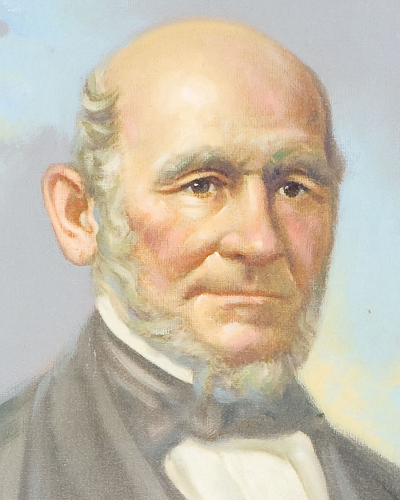 |
"Joseph always told us that we would have to pass by the sentinels that are placed between us and our Father and God. Then, of course, we are conducted along from this probation to other probations, or from this dispensation to another, by those who conducted those dispensations." -- p. 62 (JD 6:63).
This quote is especially interesting because it relates reincarnation to a dispensation, suggesting that a group of intelligences might all reincarnate together when a new dispensation is begun. The Tibetan sage, who was the principal source for the first article in this series, mentioned the same principle. He referred to a "cycle of reincarnation" in the similar context that groups of people, such as families, could reincarnate together.
Another familiar comparison that has been used, including by the Lord, is the comparison of one day to an entire lifetime. In the discovery of sacred calendars the day-year pattern became clear where the four key time points in a day (dawn, noon, sunset, midnight) correspond to the four markers in a year (spring equinox, summer solstice, autumn equinox, and winter solstice). It is not uncommon even in everyday parlance to speak of an older person as being in the "autumn of his life". Elder Kimball extends this by comparing several days of continuous working on a project to several successive probations working on a project:
"What I do not today, when the sun goes down, I lay down to sleep, which is typical of death; and in the morning I rise and commence my work where I left it yesterday. That course is typical of the probations we take." -- p. 62 (JD 4:329).
Another quote from this visionary man speaks of resurrection, which is not understood by this author and hence beyond the scope of this series of articles. This quote is included to help open our minds to the possibility that he is teaching truth:
"If you do not cultivate yourselves, and cultivate your spirits in this state of existence, it is just as true as there is a God that liveth, you will have to go into another state of existence, and bring your spirits into subjection there. Now you may reflect upon it, you will never obtain your resurrected bodies, until you bring your spirits into subjection.... I ask then, if it is your spirits that must be brought into subjection? It is; and if you do not do that in these bodies, you will have to go into another estate to do it. You have got to train yourselves according to the law of God, or you will never obtain your resurrected bodies. Mark it!" -- p. 62 (JD 1:355).
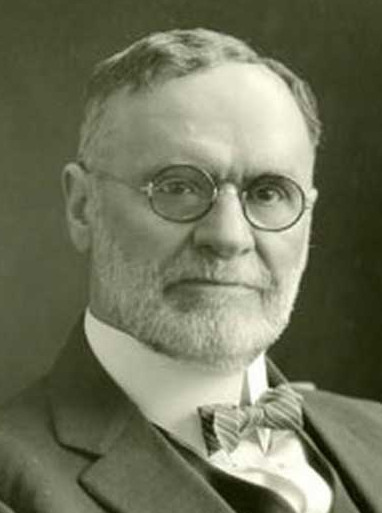 |
"8 Jun 1899. During our talks he (Lorenzo Snow) told me that his sister, the late Eliza R. Snow Smith, was a firm believer in the principle of reincarnation and that she claimed to have received it from Joseph the Prophet, her husband. He said he saw nothing unreasonable in it, if it came to him from Lord or his oracle." Diary of Orson F. Whitney, quoted on p. 78.
This quote shows how the Prophet Joseph, if he indeed taught this doctrine at all, taught it only to his closest confidants, and never publicly. If so, it was clearly deemed too much for the saints in general to handle, who would shatter like glass when any new doctrine was introduced. Note also that this quote is from his private journal. It is included to show that Lorenzo Snow apparently believed in multiple probations. It does not appear that either of these two men taught the doctrine openly.
Melvin J. Ballard was an apostle of the LDS Church from 1919 to 1939. He was very inspired and was given a personal vision of the Savior's suffering in Gethsemane, where he was allowed to be there in spirit.
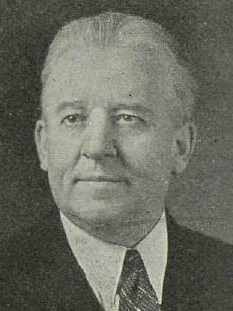 |
"A man who goes to meeting and says long prayers and yet returns home to lose his temper and abuse his wife and berate his loved ones will never get into the kingdom of God until he learns to control his unruly temper. The very best of us will need a probationary state to finish the work of preparation to go into the presence of the Father. If we do not do it here, just as sure as we live, we will have to do it hereafter, and many of us may lose the chance and opportunity of doing it hereafter." -- p. 80.
William W. Phelps was an early LDS Church leader, being a scribe to Joseph Smith, the printer of the Book of Commandments, and a counselor in the Stake Presidency in Zion. He wrote the following in the second issue of the Evening and Morning Star (July 1832), the Church monthly newspaper in Missouri, of which he was editor. The article was an editorial on the Book of Hosea, Chapter 3:
"Again, it not only promises the return of Israel in the latter days, but it declares that they shall seek the Lord their God, and David their King. Seek David their king! Here remember that David had been dead many years, for Hosea prophesied about 175 years before the Babylonian captivity: It opens the meaning of the latter part of the 37th chapter of Ezekiel, which speaking of the gathering of Israel, says that they shall dwell in the land which I have given unto Jacob my servant ... and my servant David shall be their prince forever. David must have had his eye upon the same thing when he said in the 71st Psalm, 'thou shalt quicken me again, and shalt bring me up again from the depth of the earth'.... The secret of this matter is, that God in his infinite wisdom, prepared the children of promise, the heirs of the celestial kingdom, to live twice in the flesh on the earth, once in a state of probation; and once in a state of approbation" -- p. 84.
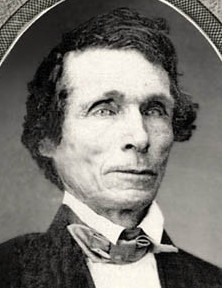 |
"If Jesus came to die and rise, to lead from captivity the captive, so did Joseph come to die and increase the power to bind Satan: that eternal lives and eternal progression might search the eternal round without impediment.... The prophet and the patriarch have gone to paradise to bear testimony of the wickedness of the world, and help hasten the deliverance of the saints. Joseph goes back among his old associates of the other world, who have waded through like scenes of affliction in the several ages past, and being beyond the power of death, as he was mighty for life, liberty, and the pursuit of happiness, among good men, to raise and exalt them for eternal lives; how much more almighty will he be with the spirits of just men made perfect, and the Holy ones, to prune the vineyard; remove the bitter branches; and give room for the speedy fulfillment of his great and last revelation?" -- pp. 84-85.
The Book of Abraham speaks of a council in heaven before this world was created. It is explicitly stated that three types of beings were present: intelligences, spirits, and souls. Once the meanings of the words "intelligence", "spirit", and "soul" are understood as used by the Lord in English, then the deeper meanings in the Book of Abraham can be understood. The overlapping meanings of those words are shown in the illustration. Let us consider each of the three and then consider the principle of "condescension" in contradistinction to "reincarnation".
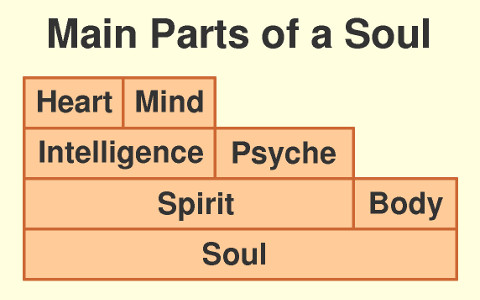 |
"Now the Lord had shown unto me, Abraham, the intelligences that were organized before the world was; and among all these there were many of the noble and great ones; And God saw these souls that they were good, and he stood in the midst of them, and he said: These I will make my rulers; for he stood among those that were spirits, and he saw that they were good; and he said unto me: Abraham, thou art one of them; thou wast chosen before thou wast born." -- Abr. 3:22-23, emphasis added.
In a revelation to Joseph Smith the Lord explained that:
Man was also in the beginning with God. Intelligence, or the light of truth, was not created or made, neither indeed can be.
All truth is independent in that sphere in which God has placed it, to act for itself, as all intelligence also; otherwise there is no existence. -- D&C 93:29-30
In my earlier articles, it was suggested that the word "intelligence" is used by the Lord in two different ways. First, it is a substance which is twofold in nature. It is composed of two more basic elements: light and truth. The aura or glory of God is composed of intelligence (D&C 93:36).
Second, heavenly parents can give birth to children who are called "intelligences", as in the quote from Abraham being discussed, who were created from light and truth. Thus, the word "intelligence" apparently can refer to both the eternal raw material as well as a being which can be created from it. Moreover, such a being appears to be composed of two parts, one which is identified with light, which is called the "mind", and the other identified with "truth", which is the called the "heart" (see illustration).
A spirit is a higher being than merely an intelligence because it has been added upon (Abr. 3:26). It has permanently attached to it what is called a soul in the King James (KJV) Bible. That entity is called a "psyche" in my work because the Lord uses "soul" differently. The Greek word "psyche", which is translated "soul" in the KJV Bible, is already an English word which is sometimes used to mean the usual word "soul", so this seems like a good choice. This is the part which has emotional feelings. The intelligence can think, but it cannot experience satisfaction nor remorse. As this article was being prepared, it became clear that many negative emotions, such as jealously, rage, fear, greed, and pride, all of which are to be overcome during mortality, often don't have a clear antonym. Those are the very emotions that if not overcome in mortality, can lead the psyche (KJV "soul") to go to hell to suffer remorse. The one word often given in a dictionary as their opposite was "peace" or "calm". In other words, the opposite is sometimes the absence of the fault, even as the opposite of a "storm" in weather might be said to be "calm".
The spirits in the meeting were apparently the spirits of just men and women made perfect (D&C 129:1-3). In Christianity, these are those who have been "born again", or "born of the spirit" (John 3:5), meaning the psyche they had during mortality is permanently attached to their intelligence. That connecting process literally gave birth to their spirit. Before that point of rebirth, they had both an intelligence and a psyche, but they were attached only to their physical body, not to each other. Without that rebirth having occurred previously, then at death, their remorseful psyche (KJV "soul") would have gone to hell while their intelligence would have gone on to a life review to plan out another mortal probation in which they might do better.
These spirits in the pre-mortal meeting are those who in the Eastern religions would be those who are said to have attained "Buddhahood" in the "Land of Golden Light" (the Christian "Paradise"), having graduated from the cycles of reincarnation for having learned to live righteously, even if they did not accept Jesus Christ as a Savior. Note that the quotation from the Book of Abraham states that the "spirits" were "good", which may not have been true of all of the intelligences. Note also that those who were only intelligences who were expelled with Lucifer, who became the so-called "evil spirits", would feel no remorse for torturing mortals because they have no psyche (KJV "soul").
On this subject, Origen quoted from the apocryphal Gospel of the Hebrews where Jacob states:
"I am an angel of God; one of the first order of spirits. Men call me Jacob, but my true name, which God has given me, is Israel." (Orat. Joseph. apud ORIG).
"Many of the Jewish doctors have believed that the souls of Adam, Abraham, and Phineas, have successively animated the great men of their nation." -- Commentary on John, Book II[3]
"There are two kinds of beings in heaven, namely: Angels, who are resurrected personages, having bodies of flesh and bones -- For instance, Jesus said: Handle me and see, for a spirit hath not flesh and bones, as ye see me have. Secondly: the spirits of just men made perfect, they who are not resurrected, but inherit the same glory."-- D&C 129:1-3
As just discussed, the brilliant spirits of "just men made perfect" apparently refers to the "spirits" which were present in the original meeting.
Abraham was told that among the spirits and souls were the noble and great ones, who would go down to earth to be the leaders and to help the intelligences being tested to know the right path to follow in order to pass the test. The scriptural word for this process of descending below one's usual level of glory in order to help others lower down to rise higher appears to be called "condescension" (1 Nephi 1:26). Note that both a spirit and a soul in that heavenly council must have already lived a mortal life: the spirit to have experienced "spiritual rebirth" where the spirit was actually born, and the soul to have be resurrected to receive permanent physical body. Thus, if these spirits and souls come to earth to be leaders rather than just for an angelic visit, then apparently there are people on earth who have been reincarnated for that purpose. They are not trying to graduate from the cycle of reincarnation caused by their having failed living a good enough life to pass the test. Instead they are coming as having graduated and return as teachers to help others to raise their level of spirituality.
This concept is reminiscent of the first quotation above by William W. Phelps, that a person comes to mortality (at least) twice: once for a probation (to be proved) and then again in approbation (approved). That quotes adds to the concept the idea that it is actually required to come a second time as a helping spirit. Perhaps that is one step on Jacob's ladder of spiritual progression on which angels both ascend and descend (Gen. 28:12).
Another point supporting the proposal that others besides the Savior condescended to come to earth to be leaders is this statement from the Prophet Joseph Smith:
"there are no angels who minister to this earth but those who do belong or have belonged to it." -- D&C 130:5
When Joseph the Seer referred to angels which had come to visit him, such as Michael and Gabriel, he sometimes identified who they were in mortal life on earth. For example Michael was Adam and Gabriel was Noah. Those are two of the seven chief angels and there seems little doubt that all of them lives mortal lives on earth.
This doctrine of condescension is not well understood by me at all, nevertheless, I know that God loves his children and has provided a way for us to return to his presence. It does appear to me, however, that if there were indeed several great and noble spirits and souls present in the Grand Council in heaven before this world began, then several of them would have condescended, along with Jesus Christ, to take on mortal bodies in order to help others in their mortal probations along their paths. If so, then their condescension into mortal bodies to help those progress who have failed their tests is far different from those who are being reincarnated multiple times because they have continued to fall short of having lived righteously enough to have been graduated from the cycle of reincarnation.
Three previous articles summarized beliefs in reincarnation from the point of view of Eastern religions where it is a fundamental belief. This article points out that the doctrine was also taught secretly to those deemed spiritually prepared for it, in both early Christianity, shortly after the Resurrection, as well as in early Mormonism, shortly after the martyrdom of the Prophet Joseph Smith. In Mormon teaching it was often called "multiple mortal probations" to distinguish it from some forms of reincarnation which believe that human intelligences can come back as other life forms (transmigration).
It was also noted that certain scriptures imply that spirits which have progressed enough to graduate from the required reincarnation cycle to either the status in paradise of a spirit of a just person made perfect, or even a resurrected being, can "go down" to a lower level of spirituality in which the earth currently resides, in order to help other spirits along their way of progression. This sort of "reincarnation" to be a "teacher" is very different from those "students" being tutored by them, who had been "held back" for not having learned their lessons in the school of mortality. The scriptural word for this other form of reincarnation appears to be "condescension".
It is concluded that reincarnation is indeed a true part of the Plan of Salvation which has been provided for us to give us repeated opportunities to progress to a state of joy by our very loving Heavenly Father.